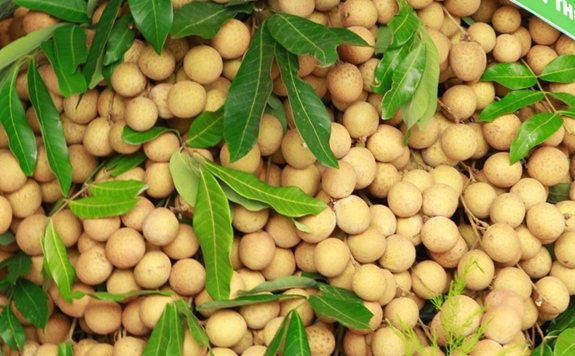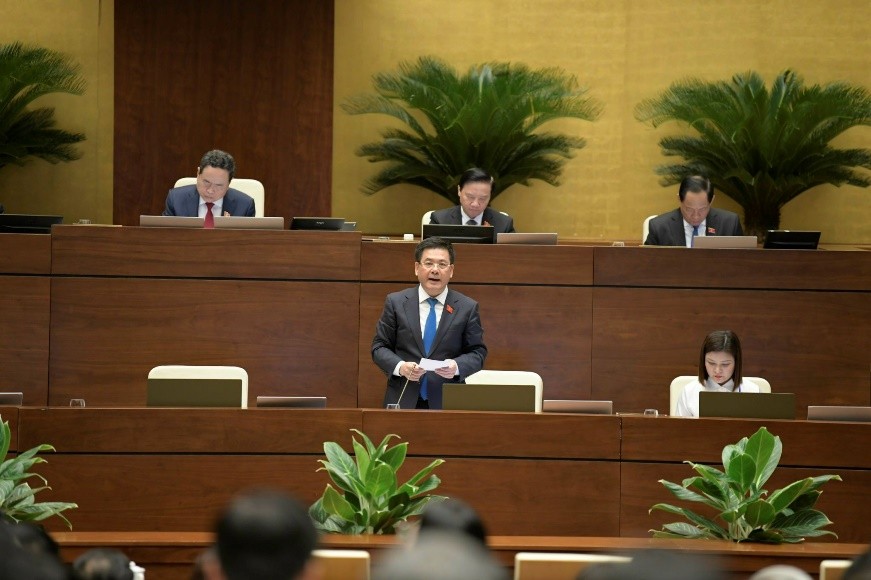
FTAs: 'Support platform' elevating Vietnamese agricultural exports
Latest
 |
| The EU's reduction of tariffs to 0% after 3-5 years of the agreement opening up opportunities for Vietnamese rice to compete with other countries when exporting to the EU market. (Photo: qdnd.vn) |
Bright spots on Agricultural Exports
With 16 FTAs implemented with over 60 partners, most of which are major economies spanning all continents and accounting for nearly 90% of global GDP, Vietnam has become one of the top 20 countries in the world in terms of international trade scale, with high, stable growth rates and continuous record trade surpluses.
The FTAs have significantly increased Vietnam's export volume, with growth rates exceeding 20% and some markets growing by more than 30%, much higher than the overall export growth rate. In 2022, Vietnam achieved a trade surplus of over 30 billion USD with FTA signed markets. Notably, exports to FTA markets have all positively recovered.
In the first five months of 2024, Vietnam's total import and export turnover is estimated to reach 156.5 billion USD, an increase of 15% compared to the same period last year.
According to the Ministry of Industry and Trade, Vietnam is exporting seafood to more than 160 markets worldwide. Among these markets, exports to member countries of the Regional Comprehensive Economic Partnership (RCEP) make up the largest portion, accounting for 63.5% of Vietnam's seafood export market share.
In Australia, Vietnamese shrimp is very popular. In 2019, Vietnamese shrimp exports to Australia reached 127 million USD, and by the end of 2022 (one year after the RCEP came into effect), this figure had doubled to 272 million USD.
 |
| Minister of Industry and Trade Nguyen Hong Dien at Question & Answer session at the 7th session of the 15th National Assembly, on June 5, 2024. (Photo: Ministry of Industry and Trade) |
The advantage of Vietnamese shrimp products compared to competitors in this market lies not only in quality and supply capacity but also in the level of processing value-added products.
Truong Dinh Hoe, Secretary General of the Vietnam Association of Seafood Exporters and Producers (VASEP), noted that thanks to the advantages of FTAs, Vietnamese seafood has increased its competitiveness, offsetting declines caused by external factors. The most notable achievement was in 2022 when seafood export turnover reached a record 11 billion USD.
Rice, one of Vietnam's strong export products, also has greater access to the European Union (EU) market thanks to the Vietnam-EU Free Trade Agreement (EVFTA), which came into effect in August 2020. The EU's reduction of tariffs to 0% after 3-5 years of the agreement opening up opportunities for Vietnamese rice to compete with other countries when exporting to the EU market. Currently, Vietnam has risen to the 8th position among non-EU countries supplying rice to the EU.
In 2023, rice exports to the EU increased by 10% in both volume and value compared to 2022, reaching approximately 104,000 tons and 71.7 million USD - the highest figures ever, clearly reflecting the efforts of Vietnamese businesses in taking the advantages of the EVFTA.
Thanks to the tariff incentives from the EVFTA, Vietnam's rice exports to the EU market have more competitive advantages compared to other markets. Although the volume of rice exports to the EU is not large, Vietnam has managed to export high-end rice varieties, especially fragrant rice, which brings high prices.
Mr. Dang Phuc Nguyen, Secretary General of the Vietnam Fruit and Vegetable Association, said that domestic fruit and vegetable export businesses have effectively taken advantage of the opportunities from FTAs to boost exports to key markets.
Currently, the EU is Vietnam's third-largest market for fruit and vegetable exports. In 2023, fruit and vegetable exports to the EU increased by 30% compared to 2022, and this year, exports to this market are expected to continue growing by double digits, estimated to exceed 300 million USD.
Proudly ranked as the world's second-largest export product, Vietnamese coffee also greatly benefits from FTAs. According to the Vietnam Coffee and Cocoa Association (VICOFA), in 2022, Vietnam's coffee exports reached over 1.77 million tons, valued at over 4.05 billion USD. The EU market alone accounted for 38.3% of the total coffee export volume. In 2023, the EU spent approximately 1.66 billion USD on coffee from Vietnamese suppliers.
The EVFTA has helped the coffee industry increase its value and continue to expand its market share there. Currently, the EU remains the world's largest coffee importer, and Vietnam ranks second among the top coffee suppliers to the EU, just behind Brazil.
Enhancing the effectiveness of FTAs
On June 5, at the 7th session of the 15th National Assembly, discussion among deputies focused on topics of effectively leveraging FTAs to help Vietnamese businesses expand and diversify supply chain markets and boost exports.
According to Minister of Industry and Trade Nguyen Hong Dien, one of the solutions to support export businesses to exploit FTAs is to help businesses to improve their competitiveness by affirming the quality of their goods and offering reasonable prices. Additionally, supporting businesses in enhancing market access through diverse trade promotion activities is also essential.
The Ministry of Industry and Trade continues to accelerate the pace of negotiations, signing trade association agreements, and opening up markets; supporting businesses and updating information to ensure appropriate responses; guiding businesses on market access regarding food safety, traceability, technical standards; and warning, preserving, and protecting Vietnamese businesses in trade remedy cases, the Minister said.
Minister Nguyen Hong Dien affirmed “International economic integration is a consistent policy of the Party and the State. Promoting the negotiation of free trade agreements and attracting foreign investors to boost production and exports is a necessary step. Without these measures, we cannot secure significant investment capital, advanced technology, management experience, or especially consumer markets. However, prolonging this policy could turn our economy into a processing economy and trap us in the middle-income trap.”
Therefore, in the future, Minister Nguyen Hong Dien believes that it is necessary to enhance the country's economic integration capabilities by improving the integration of Vietnamese businesses into the global production and supply chain. At the same time, the economy must continue to open up by selectively attracting foreign direct investment (FDI) and signing new FTAs as well as upgrading and improving existing FTAs in potential markets.
In particular, the Ministry of Industry and Trade focuses on enhancing the role of Vietnam's Trade Offices abroad. Minister Nguyen Hong Dien stated that there are currently 58 Trade Offices in 59 countries. The Ministry has requested these Trade Offices to provide appropriate policy consultations to protect Vietnam's legitimate rights and interests, actively promote Vietnamese product brands, connect investments, and protect the interests of Vietnamese businesses abroad when they encounter legal disputes.
The effective exploitation of FTAs in recent times has helped Vietnamese businesses expand and diversify supply chain markets, boost exports, and create conditions for Vietnamese goods to participate more deeply in the global production and supply chain.





















